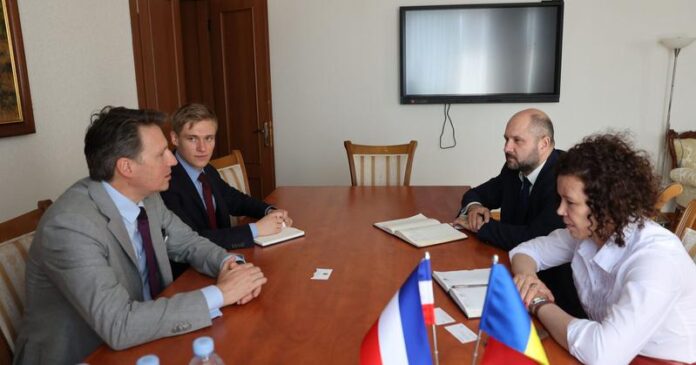A significant step towards improving energy efficiency in public buildings has been achieved with the development of the first information system by Green City Lab. The database now contains records for 4,500 public buildings with a surface area greater than 400 square meters, and these data are regularly updated. The system not only includes information about administrators and beneficiaries of public buildings but also tracks energy consumption over the past three years, aiming to enhance energy performance. Furthermore, an energy audit is planned for 300 of these public buildings.
Victor Parlicov, the Minister of Energy, expressed gratitude to the Ambassador of the Kingdom of the Netherlands in the Republic of Moldova, Fred Duijn, for the support provided in realizing this milestone information system for energy consumption in public buildings. Minister Parlicov highlighted that this database would assist in prioritizing energy efficiency projects in the public sector.
“Our immediate objective is to launch energy efficiency projects in both the public and residential sectors. In the case of public buildings, we aim for the funds saved through energy consumption improvements to be reinvested in other objectives. This information system will provide us with an overview of the situation,” stated Minister Victor Parlicov.
FOR THE MOST IMPORTANT NEWS, SUBSCRIBE TO OUR TELEGRAM CHANNEL!
The official also acknowledged the contribution of the Embassy of the Kingdom of the Netherlands in the implementation of the “Primele rândunele” (First Swallows) project, carried out by the Expert-Grup Analytical Center. Through this initiative, energy audits were conducted for ten residential blocks, and funding for infrastructure improvements to achieve more efficient energy consumption has been secured for one of them.
“Through such energy efficiency projects and the subsidies granted, our goal is to reduce utility bills,” added Minister Parlicov.
Additionally, Victor Parlicov expressed gratitude to the Netherlands for their assistance during critical moments throughout the energy crisis, providing political support, expertise, and financial aid focused on diversifying energy sources and enhancing energy security. For example, in October 2021, with the support of the Kingdom of the Netherlands, the Republic of Moldova successfully made its first purchases of natural gas from the international market.
The development of the information system for energy consumption in public buildings marks a significant milestone in Moldova’s efforts to improve energy efficiency and prioritize sustainable practices. By leveraging data and implementing energy-saving measures, the country aims to reduce costs, enhance environmental sustainability, and pave the way for a more energy-resilient future.


